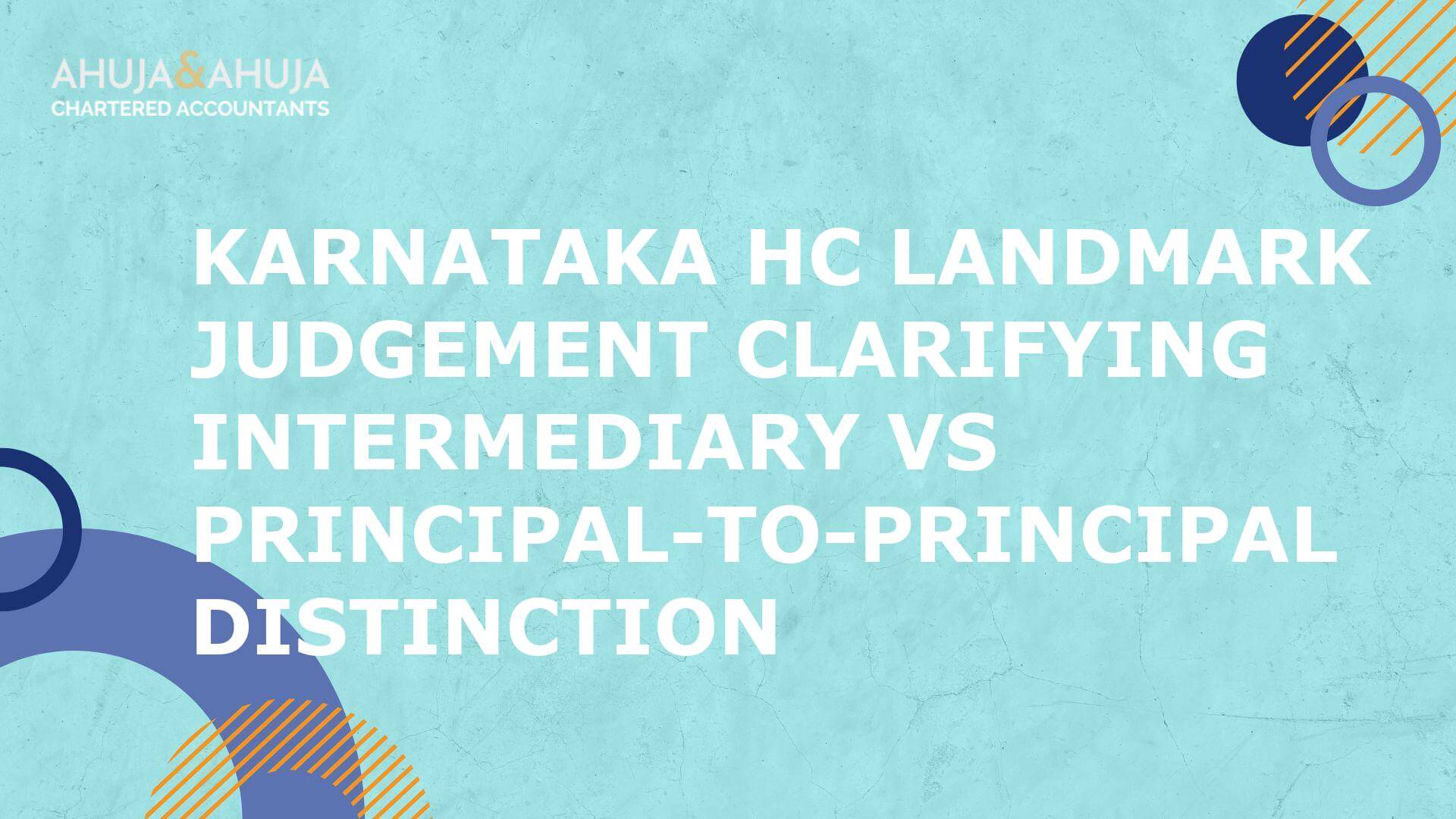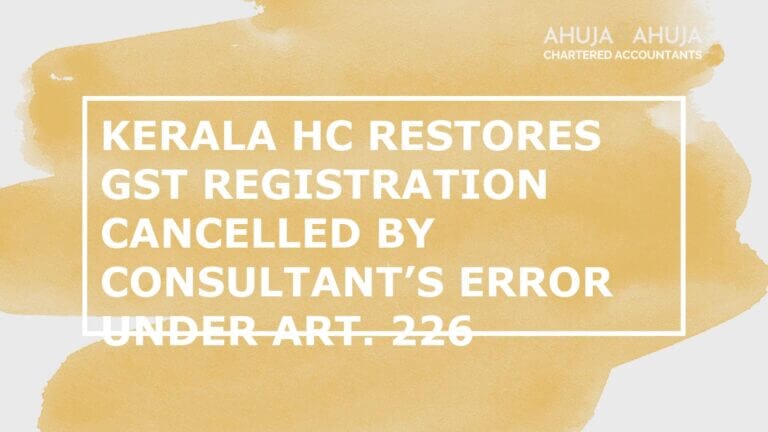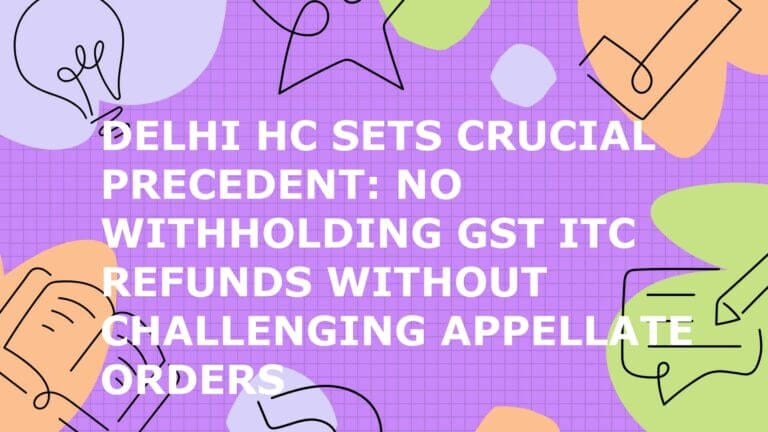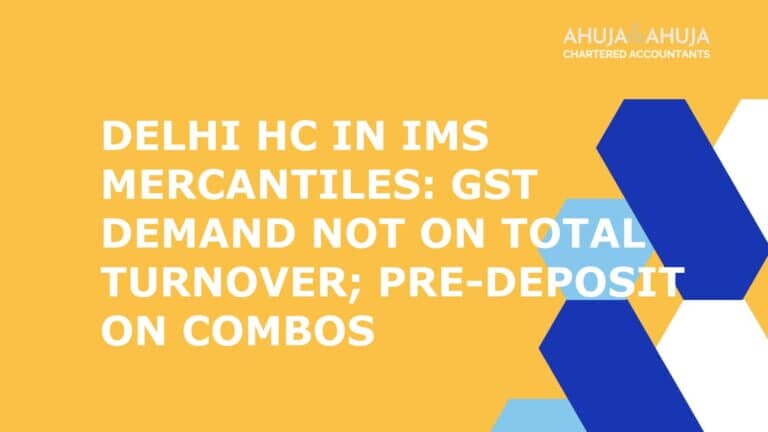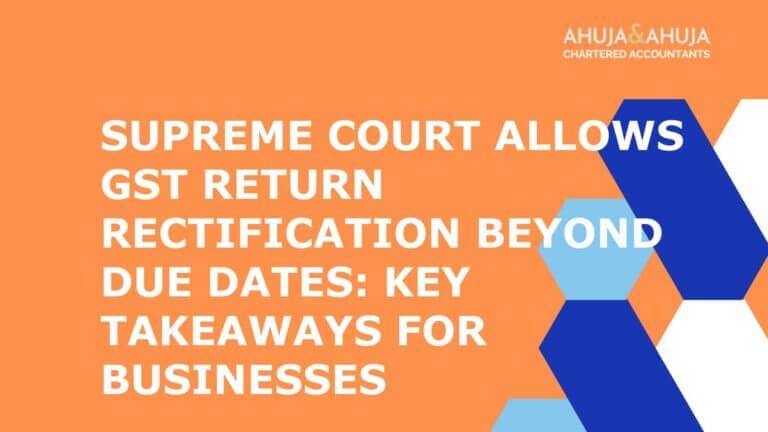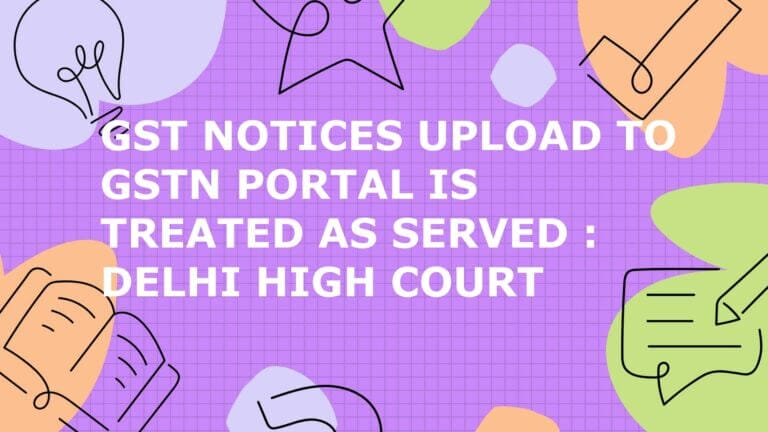Karnataka HC Landmark Judgement Clarifying Intermediary Vs Principal-to-Principal Distinction in GST
I. Executive Summary
The Karnataka High Court’s recent decision in the case of M/s Columbia Sportswear India Sourcing Pvt. Ltd. vs. Union of India & Ors. marks a pivotal moment in the ongoing debate over the classification of cross-border service arrangements under GST. At the heart of the dispute was whether the petitioner’s “Buying Support Services” for its US-based affiliate constituted intermediary services—subject to GST in India—or a principal-to-principal export of services, which would be zero-rated and eligible for refund of input tax credit (ITC).
The Court decisively quashed the tax department’s classification of the petitioner as an “intermediary,” holding that the services were rendered on a principal-to-principal basis. This distinction is not just academic: it directly impacts the GST treatment of such services, refund eligibility, and the compliance posture of exporters and their advisors.
Key Takeaways:
- The Court reaffirmed that the “own account” exception in Section 2(13) of the IGST Act is central to determining intermediary status.
- Detailed scrutiny of the service agreement—especially clauses on independence, authority, and risk—was critical in the Court’s analysis.
- The judgment provides much-needed clarity for exporters of services, especially in IT/ITES, sourcing, and consulting sectors, on how to structure contracts and defend refund claims.
- The ruling aligns with a growing judicial consensus that mere facilitation or support, when performed independently and not as an agent or broker, does not amount to intermediary services.
Implications for Businesses and CA Professionals:
- Exporters of services can take comfort in a more predictable GST regime, provided their contracts and operations reflect genuine principal-to-principal relationships.
- Chartered Accountants and GST advisors must revisit client agreements, documentation, and refund strategies in light of this judgment.
- The decision sets a clear legal test and practical roadmap for avoiding adverse GST classifications and defending refund claims.
II. Understanding the Judgment and Its Legal Basis
A. Key Factual Landscape
The dispute centered on M/s Columbia Sportswear India Sourcing Pvt. Ltd. (“the petitioner”), an Indian company providing buying support services to its US-based parent, Columbia Sportswear Company. The petitioner’s role involved assisting with sourcing, supplier coordination, quality checks, and shipment tracking for manufactured products destined for the US entity. Crucially, the petitioner operated as an independent contractor, with no authority to bind or represent the US company in dealings with third-party suppliers.
The tax department, however, classified these services as “intermediary” in nature, denying the petitioner’s GST refund claims and raising demands. The petitioner challenged this before the Karnataka High Court, arguing that its services were exports rendered on a principal-to-principal basis, not as an agent or broker.
B. Legal Definitions and Judicial Tests
1. Meaning of “Intermediary” under Section 2(13), IGST Act
Section 2(13) of the IGST Act defines “intermediary” as:
“a broker, an agent or any other person, by whatever name called, who arranges or facilitates the supply of goods or services or both, or securities, between two or more persons, but does not include a person who supplies such goods or services or both or securities on his own account.”
The “own account” exception is the fulcrum of the definition. If a person supplies services on their own account—rather than merely arranging or facilitating a supply between others—they fall outside the intermediary net.
2. Principal-to-Principal Supply: Criteria Derived from Statute
A principal-to-principal supply is characterized by:
- Direct provision of services to the recipient, not as a representative or agent.
- Absence of authority to bind or negotiate on behalf of the recipient.
- Commercial risk and responsibility resting with the service provider.
C. Analytical Dissection by the Court
1. Buying Support Services Agreement: Most Influential Clauses
The Court’s analysis zeroed in on the service agreement’s language:
- Independence Clause: Explicitly stated the petitioner was an independent contractor, not an agent or franchisee.
- No Agency/Authority: The petitioner had no power to represent or bind the US company in supplier negotiations.
- Service Scope: The petitioner’s role was limited to support functions—sourcing, quality checks, logistics—not arranging or facilitating sales between third parties.
This fact-contract alignment was pivotal. The Court found that the petitioner’s activities were performed on its own account, not as a facilitator or broker.
2. Role and Weight of CBIC Circular No. 159/15/2021-GST
The Court considered the CBIC’s clarificatory circular, which reiterates that:
- Intermediary services require three parties and two distinct supplies.
- Sub-contracting or direct provision of services does not amount to intermediary activity.
Applying this to the petitioner’s case, the Court concluded that the petitioner was not arranging or facilitating a supply between two others, but directly providing services to its US affiliate.
3. Legal Tests Applied
- “Own Account” Test: Was the petitioner supplying services on its own account, or merely facilitating a supply between others? The Court answered in the affirmative for the former.
- Facilitator/Broker vs. Direct Service Provider: The petitioner’s lack of authority and direct execution of services tipped the scale toward principal-to-principal.
- Rejection of Agency/Delegation Arguments: The Court dismissed the department’s contention that the petitioner acted as an agent or delegate.
D. Evolving Judicial Consensus and Precedent Reliance
The Court’s reasoning drew strength from a series of High Court and Tribunal decisions:
- Amazon Development Centre India Pvt. Ltd. (Karnataka HC): Services performed on own account, not intermediary.
- Genpact India Pvt. Ltd. (Punjab & Haryana HC): Sub-contracting does not create intermediary status.
- Ernst & Young Ltd., Singtel, Boks, Nokia: All reinforce the principle that direct service provision, without agency or facilitation, is not intermediary activity.
Synthesizing these precedents, the Karnataka High Court’s judgment cements a growing judicial consensus: the intermediary tag cannot be affixed where the service provider acts independently and on its own account.
III. Implications for GST Compliance and Refunds
The Karnataka High Court’s ruling doesn’t just clarify legal theory—it reshapes the compliance landscape for exporters of services and their advisors. For CA professionals and businesses, the judgment is a practical playbook for securing GST refunds, structuring contracts, and defending positions during departmental scrutiny. Let’s break down the actionable implications.
A. Refund Eligibility for Exporters of Services
1. Impact of Classification: Principal-to-Principal vs. Intermediary
The distinction between principal-to-principal supply and intermediary services is not a mere technicality—it determines whether a service qualifies as an “export” (zero-rated, refund-eligible) or is taxed in India (with no refund of ITC). The Court’s finding that the petitioner was not an intermediary means:
- Export Status Restored: Services provided on a principal-to-principal basis to a foreign recipient are treated as exports under Section 2(6) of the IGST Act.
- Refund Entitlement: Exporters can claim refunds of unutilized input tax credit under Section 54 of the CGST Act, provided other conditions are met.
- No GST on Exported Services: The supply is zero-rated, so GST is not payable on the outward supply, and ITC is not blocked.
2. GST Refund Entitlement under Sections 54 & 56, CGST Act
The Court directed the department to grant refunds with interest, reinforcing that:
- Timely Refunds: Exporters wrongly denied refunds due to misclassification as intermediaries are entitled to prompt redressal.
- Interest on Delayed Refunds: Section 56 mandates interest if refunds are not paid within 60 days of application, a point the Court emphasized by ordering payment within three months.
B. Practical Compliance Measures
1. Contract Review: Steps to Ensure Principal-to-Principal Reflection
- Immediate Audit: Businesses should review all cross-border service agreements to ensure they reflect an independent contractor relationship.
- Key Clauses: Contracts must clearly deny agency, authority, and control by the foreign recipient. The scope of services should be direct, not facilitative.
- Avoid Ambiguity: Vague or open-ended language can invite departmental challenges. Precision is your best defense.
2. Refund Application Strategy Post-Judgment
- Revisit Past Claims: If refunds were denied on intermediary grounds, consider filing for review or reapplication, citing this judgment and engaging experts in GST refund services.
- Template Submissions: Prepare a standard set of legal arguments and documentary evidence referencing the Karnataka HC’s reasoning.
- Track Limitation Periods: The Court’s reliance on CBIC Notification No. 13/2022 (which extends/excludes certain periods for limitation) means even older claims may be revived.
3. Addressing Limitation: Treatment under CBIC Notification No. 13/2022
- Limitation Relief: The Court set aside rejection of refund claims on limitation grounds, referencing the CBIC notification that extends the period for filing due to COVID-19 disruptions.
- Action Point: CAs should proactively identify clients whose claims were rejected as time-barred and advise on possible remedial action, particularly in regions where GST audit services and compliance support are sought.
C. Evidence and Documentation
1. Essential Records for Exports and Service Delivery
- Service Agreements: The contract is the first line of defense—ensure it is robust, up-to-date, and reflects principal-to-principal terms.
- Invoices and Payment Records: Demonstrate that consideration flows directly from the foreign recipient to the Indian service provider.
- Work Product and Communication: Maintain records of deliverables, correspondence, and project management that show independent execution.
2. Demonstrating Independent Contracting Relationship
- No Agency Language: Explicitly state in the agreement that the service provider cannot bind or represent the foreign principal.
- Scope of Work: Clearly define services as being performed for the recipient, not for third parties.
- Risk and Responsibility: Show that commercial risk and liability rest with the Indian entity, not the foreign recipient.
3. Responding to Departmental Scrutiny: Dos and Don’ts
- Do:
- Present a well-organized contract and supporting documents.
- Reference relevant judicial precedents and CBIC circulars.
- Provide a clear narrative of the service flow and relationship.
- Don’t:
- Submit agreements with ambiguous or conflicting clauses.
- Rely solely on oral explanations—documentation is key.
- Ignore departmental notices; timely, well-reasoned responses are essential.
IV. Contract Structuring and Best Practices
The Karnataka High Court’s judgment is a clarion call for businesses and CA professionals to revisit the fine print of their service agreements. The difference between being classified as an “intermediary” or a principal-to-principal exporter often hinges on contract language and operational realities. Here’s how to future-proof your GST position.
A. Key Contractual Elements to Avoid Intermediary Tag
1. Definition of Parties and Scope
- Clarity in Roles: Clearly identify the service provider and recipient as independent contracting parties. Avoid any language that hints at agency, representation, or authority to act on behalf of the recipient.
- Direct Service Provision: The contract should specify that the Indian entity is providing services directly to the foreign recipient, not arranging or facilitating a supply between the recipient and third parties.
2. Express Clauses Denying Agency, Authority, and Control
- No Agency/No Authority: Insert explicit clauses stating that the service provider has no authority to bind, represent, or negotiate on behalf of the foreign principal.
- No Control or Supervision: The foreign recipient should not exercise day-to-day control or supervision over the Indian entity’s operations. The relationship must be one of equals, not principal-agent.
3. Assignment of Responsibilities and Commercial Risk
- Risk Allocation: The contract should make it clear that commercial risk, liability, and responsibility for service delivery rest with the Indian entity.
- No Delegation of Core Functions: Avoid clauses that allow the foreign recipient to direct or delegate core functions to the Indian entity in a manner that resembles agency.
B. Drafting Recommendations
1. Standard Clauses for Principal-to-Principal Relationships
- Independent Contractor Clause:
“The Service Provider is engaged as an independent contractor and nothing in this Agreement shall be construed as creating an agency, partnership, or employer-employee relationship between the Parties.” - No Authority to Bind:
“The Service Provider shall have no authority to bind or represent the Service Recipient in any manner whatsoever.” - Direct Service Scope:
“All services under this Agreement are provided by the Service Provider directly to the Service Recipient and not to any third party.”
2. Avoiding Ambiguity: Language, Roles, and Rights
- Precision in Scope: Define the scope of services in detail, avoiding vague terms like “facilitate,” “arrange,” or “coordinate” unless the context makes clear these are internal support functions, not third-party facilitation.
- No Customer Identification: The Indian entity should not be responsible for identifying or negotiating with customers or suppliers on behalf of the foreign principal.
- Payment Terms: Ensure that consideration flows directly from the foreign recipient to the Indian service provider, with no pass-through or commission arrangements.
3. Cautionary Notes: Sub-contracting and Service Segregation
- Sub-contracting: If the Indian entity sub-contracts any part of the service, the contract should clarify that such sub-contracting is on its own account, not as a facilitator for the foreign principal.
- Service Segregation: Where multiple services are provided, segregate those that are principal-to-principal from any that might be facilitative, and draft separate agreements if necessary.
C. Role of CAs and Advisors
1. Conducting Contractual Audits for GST Risks
- Periodic Reviews: Regularly audit client contracts for language or structures that could trigger intermediary classification.
- Red Flag Identification: Watch for terms like “agent,” “representative,” “facilitate,” or “arrange” in the context of third-party dealings.
2. Guiding Clients on Redrafting and Documentation
- Template Upgrades: Help clients update standard contract templates to reflect the latest judicial guidance.
- Documentation Checklists: Provide clients with checklists of required documents—contracts, invoices, communications—to substantiate principal-to-principal relationships.
3. Addressing Existing Ambiguities and Amending Templates
- Rectification: Where existing contracts are ambiguous, advise on executing addenda or amendments to clarify the relationship.
- Training and Awareness: Educate client teams (legal, sales, operations) on the importance of contract language and operational alignment with GST positions.
For businesses and professionals located in key Indian commercial hubs, expert assistance from Chartered Accountants in Delhi and Chartered Accountants in Chandigarh can be invaluable in navigating these changes and ensuring compliant contracts and refund strategies.
V. Conclusion and Way Forward
The Karnataka High Court’s ruling provides a significant legal and practical framework for distinguishing intermediary services from principal-to-principal supplies under GST. By emphasizing the “own account” test and scrutinizing contractual terms, the judgment offers clarity and certainty to exporters and their advisors.
Businesses should proactively review and, if necessary, restructure their contracts and operational models to align with this precedent. Chartered Accountants and GST professionals play a crucial role in guiding clients through this transition, ensuring compliance, and maximizing refund opportunities.
As judicial trends continue to evolve, staying abreast of developments and maintaining robust documentation will be key to navigating the GST landscape effectively.
Disclaimer
The materials provided herein are solely for educational and informational purposes. No attorney/professional-client relationship is created when you access or use the site or the materials. The information presented on this site does not constitute legal or professional advice and should not be relied upon for such purposes or used as a substitute for professional or legal advice.

